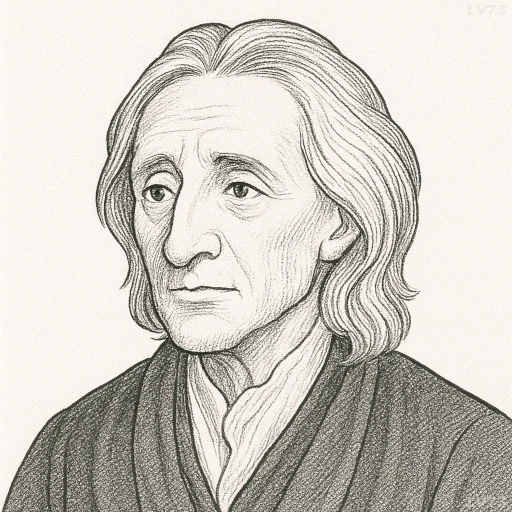“The reason why men enter into society is the preservation of their property.”

- August 29, 1632 – October 28, 1704
- Born in England (UK)
- Philosopher and political thinker
table of contents
Quote
“The reason why men enter into society is the preservation of their property.”
Explanation
In this quote, John Locke argues that the primary motivation for individuals to form a society and establish a government is the protection of their property. For Locke, property encompasses not only material possessions but also life and liberty, which are fundamental to individual freedom. He suggests that, in a state of nature, people might struggle to protect their property from theft or violence, which is why they form societies and agree to create a system of government that can ensure the security of their rights. Locke’s view here is central to his political philosophy, particularly in his theory of the social contract, where individuals consent to give up certain freedoms in exchange for the protection of their natural rights.
Locke’s perspective was revolutionary during the 17th century, particularly in the context of the Glorious Revolution of 1688 in England, which challenged the absolute power of the monarchy and laid the foundation for modern constitutional government. Locke’s argument that the protection of property justifies the creation of government provided a strong counterpoint to the idea of divine right monarchy, suggesting that government exists only to serve the individual and protect their natural rights. This view influenced later political revolutions, including the American Revolution, where the protection of property rights was central to the demands for independence and democratic governance.
In modern society, Locke’s argument continues to shape debates on property rights and the role of government. For instance, contemporary discussions on economic policies, social justice, and legal protections often center around the balance between individual property rights and societal good. Locke’s view on the role of government in protecting property is foundational in democratic societies, where laws are designed to safeguard the rights of individuals while ensuring that those rights do not infringe upon the rights of others. His emphasis on the preservation of property remains a core principle in the defense of individual freedom and economic stability.
Would you like to share your impressions or related stories about this quote in the comments section?

